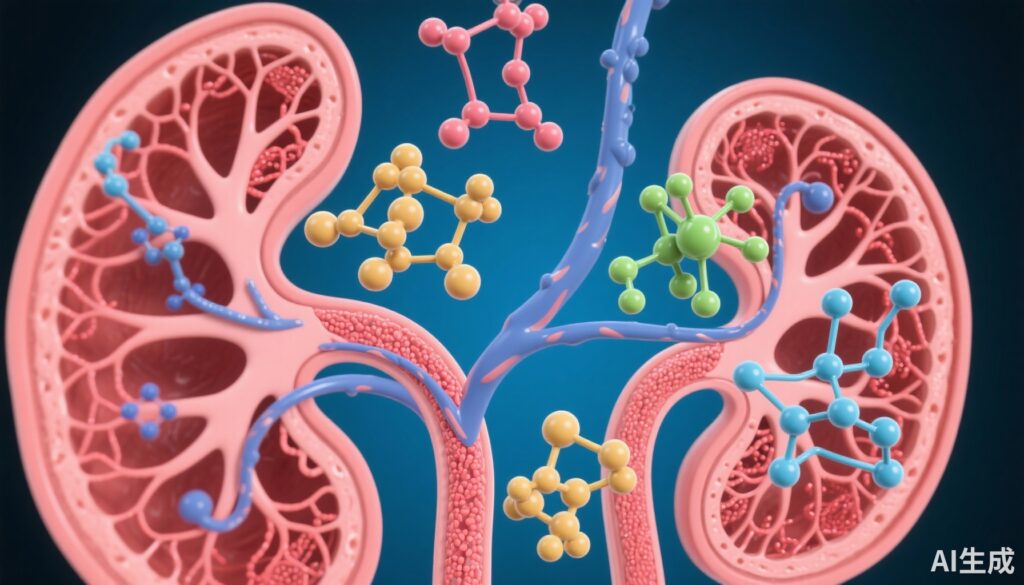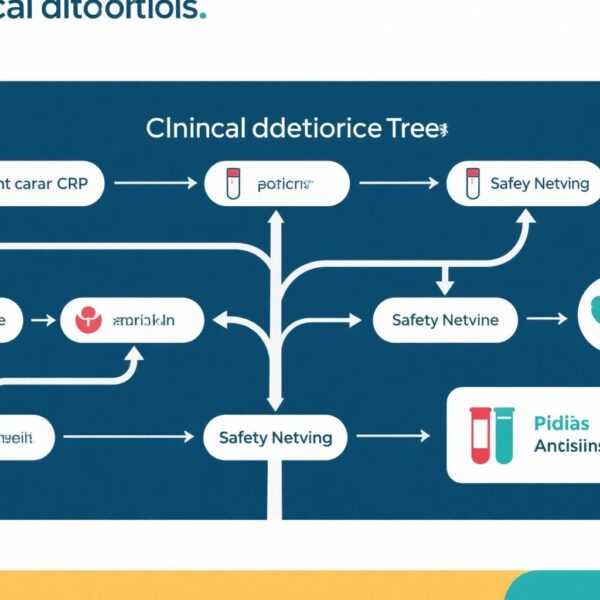Highlight
– Iptacopan, an oral inhibitor of complement factor B, selectively blocks the alternative complement pathway implicated in C3 glomerulopathy.
– In a multinational, randomized phase 3 trial, iptacopan significantly reduced proteinuria by 35% compared to placebo at six months.
– The treatment was well tolerated with mostly mild to moderate adverse events and no meningococcal infections reported.
Study Background
C3 glomerulopathy (C3G) is a rare, severe form of glomerulonephritis characterized by uncontrolled activation of the alternative complement pathway, leading to kidney inflammation and progressive loss of renal function. It predominantly affects younger adults and currently lacks approved disease-specific therapies, relying on supportive care such as renin-angiotensin-aldosterone system (RAAS) inhibition and immunosuppressants. Given the overactivation of complement components in the disease pathogenesis, targeted proximal complement inhibition offers a rational therapeutic strategy. Iptacopan (LNP023) is an orally administered inhibitor of factor B, a key protein in the alternative pathway, designed to selectively suppress this cascade and potentially halt disease progression. The APPEAR-C3G phase 3 study was conducted to assess the efficacy and safety of iptacopan in adult patients with biopsy-confirmed C3G.
Study Design
APPEAR-C3G was a randomized, double-blind, placebo-controlled, parallel-group, phase 3 trial conducted across 35 centers in 18 countries. Adult participants aged 18 to 60 years with biopsy-confirmed C3G and evidence of alternative complement pathway activation (defined by reduced serum C3 levels) were enrolled. Key inclusion criteria included a urine protein-creatinine ratio (UPCR) ≥1.0 g/g measured on two occasions prior to randomization, an estimated glomerular filtration rate (eGFR) ≥30 mL/min/1.73 m², and vaccination against Neisseria meningitidis and Streptococcus pneumoniae due to infection risks associated with complement inhibition. Participants were randomized 1:1 to receive either iptacopan 200 mg orally twice daily or placebo for 6 months, in addition to standard-of-care treatments including RAAS inhibitors and permitted immunosuppressants. Following the double-blind phase, all participants received open-label iptacopan for an additional 6 months. The primary endpoint was the relative change in proteinuria after 6 months, measured by 24-hour UPCR and analyzed as the log-transformed ratio to baseline.
Key Findings
From July 2021 to February 2023, 74 participants were randomized: 38 to iptacopan and 36 to placebo. The cohort comprised predominantly White males (64% male, 69% White). Baseline characteristics were balanced between groups, with mean baseline 24-hour UPCR of 3.33 g/g in the iptacopan arm and 2.58 g/g in the placebo arm. At 6 months, the iptacopan group exhibited a statistically significant 30.2% reduction in proteinuria relative to baseline compared to a 7.6% increase in the placebo arm. After adjustment, this corresponds to a 35.1% relative reduction versus placebo (95% confidence interval [CI], 13.8% to 51.1%; p=0.0014). The absolute geometric mean UPCR decreased from 3.33 to 2.17 g/g in the iptacopan group but rose slightly from 2.58 to 2.80 g/g in the placebo group.
Regarding safety, treatment-emergent adverse events were reported in 79% of iptacopan recipients and 67% in the placebo group, mostly mild or moderate in severity. Serious adverse events occurred in 8% versus 3%, respectively. Importantly, there were no deaths, treatment discontinuations due to adverse events, or cases of meningococcal infection during the trial.
Expert Commentary
The data from APPEAR-C3G provide compelling evidence that proximal complement inhibition with iptacopan effectively reduces proteinuria—a key marker and driver of renal disease progression—in patients with C3G. Proteinuria reduction of over 30% in this context is both statistically and clinically meaningful, suggesting that targeting factor B disrupts pathological complement activation at an early step, preserving renal function and potentially preventing progression to end-stage kidney disease. The trial’s robust, placebo-controlled design and international enrollment reinforce the generalizability of these findings to a broad adult C3G population.
From a mechanistic perspective, iptacopan’s selective blockade of the alternative complement pathway reduces formation of C3 convertase, which is excessively active in C3G, minimizing glomerular injury. Prior approaches targeting downstream complement components have shown limited efficacy or tolerability issues, highlighting the advantage of a proximal inhibitor.
While safety outcomes were encouraging, longer-term follow-up is necessary to comprehensively assess infection risks and sustained efficacy, particularly given the lifelong nature of complement dysregulation in C3G. The exclusion of pediatric patients and elderly adults also leaves areas for future research. Moreover, the effect of concomitant immunosuppressants on iptacopan response warrants further study.
Conclusion
Iptacopan represents a promising new oral therapeutic option for adults with C3 glomerulopathy, achieving significant proteinuria reduction on top of standard supportive care with an acceptable safety profile at 6 months. These findings address a critical unmet need in this ultra-rare, severe renal disease and support consideration of iptacopan as a disease-modifying agent. Ongoing and future studies should expand on long-term renal outcomes, combination strategies, and population applicability to fully establish its role in clinical practice.
Funding and Trial Registration
This study was funded by Novartis Pharma. The APPEAR-C3G trial was registered at ClinicalTrials.gov (NCT04817618).
References
Kavanagh D, Bomback AS, Vivarelli M, Nester CM, Remuzzi G, Zhao MH, Wong EKS, Wang Y, Krishnan I, Schuhmann I, Trapani AJ, Webb NJA, Meier M, Israni RK, Smith RJH; APPEAR-C3G investigators. Oral iptacopan therapy in patients with C3 glomerulopathy: a randomised, double-blind, parallel group, multicentre, placebo-controlled, phase 3 study. Lancet. 2025 Sep 25:S0140-6736(25)01148-1. doi: 10.1016/S0140-6736(25)01148-1. Epub ahead of print. PMID: 41016405.



